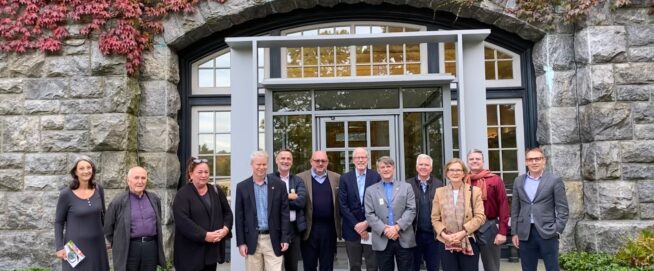
News
 Pocantico, New York
Pocantico, New York TIME TO CONCLUDE WESTERN BALKAN LINGERING CONFLICTS

Stability in the Western Balkans remains fragile. Ethnically driven strife in Bosnia and Herzegovina and the status dispute between Kosovo and Serbia are the two major sources of this instability. The US and the EU have increased their engagement in the region in light of the Russian aggression in Ukraine, but their efforts so far have not produced substantial breakthroughs. Bosnia and Herzegovina cannot move forward without overhauling its outdated institutional architecture and implementing substantive reforms. Serbia and Kosovo are not likely to improve their economic and EU accession prospects without finding a solution to their two-decade long dispute.
To address these two major sources of potential conflict, the Council for Inclusive Governance (CIG) brought together a group of former and current US and EU senior diplomats, who serve or were involved in Western Balkan affairs, to contribute to developing a more effective trans-Atlantic initiative to resolve the region’ disputes. The recommendations are based either on consensus or broad agreement. They do not necessarily reflect the views of individual participants and the organizations they represent, CIG, or the Rockefeller Brothers Fund (RBF), which supports the initiative. The roundtable was held on October 12-13, 2022 at RBF’s Pocantico Center in Tarrytown, New York. A few participants took part via teleconference. CIG prepared the report and takes the responsibility for its content.
The discussions revolved around six recommendations: 1) the EU should offer the Western Balkan countries a credible accession process that leads to full membership within a reasonable timeframe; 2) the Western Balkan countries should resolve the outstanding disputes and undertake fundamental reforms; 3) the US and the EU should use their authority to encourage Bosnia and Herzegovina to overhaul its outdated institutional infrastructure; 4) the US should become a stakeholder, either formally or informally, in the Kosovo-Serbia negotiations; 5) the EU and the US should design a clear framework for negotiations between Kosovo and Serbia with strict conditions and timelines; and 6) the international community should continue its support for the civil society so that it plays an effective role in the region’s democratization.
Below is the report from the discussions.








